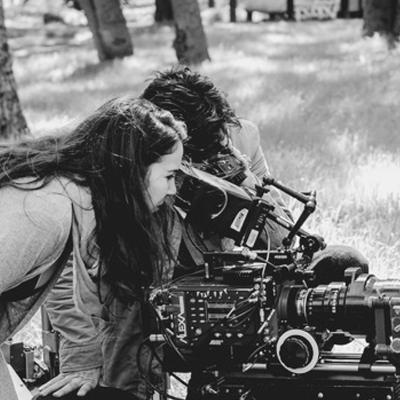Maya Ben Yair '17 | Filmmaker

Maya Ben Yair ‘17, the inaugural Lumer Fellow, found that her film Maydeleh and the Prisoner (2017) was born from the fellowship, but its inspiration stems from her identity as an Israeli international student, her interest in the American approach to Jewish Studies, and her double major in Film Production and Screenwriting.
Maya first discovered the Jewish Studies department through her involvement with Jewish Student Life. She was close with the campus rabbi at the time, and after meeting Professor Holli Levitsky, she became interested in exploring Jewish Studies in a way that differed from what she had grown up with in Israel –– an approach that was more focused on culture and history than the religious aspect of Judaism. This interest manifested in her film, which would go on to premiere at the Laemmle Theatre in Santa Monica, and would screen at the Cannes Film Festival “Short Film Corner” in 2018.
Maydeleh and the Prisoner revolves around a Holocaust survivor who sustains an injury that requires him to have a live-in caretaker. A Japanese woman takes on that role, and is quickly given the Yiddish nickname “Maydeleh.” The film is a beautiful representation of cultural memory and intergenerational trauma, and Maya managed to approach a story that has been told so many times –– that of a Holocaust survivor –– from a unique angle. Maya cites her discussions with Professor Holli Levitsky and Mrs. Estee Lumer as the catalyst for developing the film through this perspective.
“I didn’t want to do anything using the mythology of the Holocaust for drama… I didn’t want to abuse it for its dramatic appeal,” Maya said. “Through talking to these women I was able to find an angle that was a bit more profound.”
Jewish and Japanese approaches to resilience –– simultaneously distinct to each culture and universally human –– are embedded in the film, stemming from the ways in which both cultures respond to trauma. Maya was interested in juxtaposing the Jewish-Israeli culture she grew up with alongside an Eastern tradition of softness and mindfulness in response to hardship.
Coming to the U.S. alone as a college student, Maya experienced challenges of her own. She worked full time while also double majoring, and as an Israeli citizen, she had already been in the military before attending LMU. Post-college, when she landed a job at Netflix, she encountered challenges with her work visa: for nine months before her visa was renewed, she couldn’t be or work in the United States. To solve this and keep her job at Netflix, she worked from anywhere in the world that wasn’t the U.S., including the Philippines, Singapore, urban and rural parts of Japan, Korea, Brazil, multiple European countries, and of course, her home base of Israel. She now is able to work in the U.S., but about a year after she received her work visa, COVID hit. This experience as a “nomad,” as Maya described it, certainly tested her resilience.
Despite all this, she prevailed. Maya still works at Netflix, and now manages a team that organizes post-production facilities for Netflix creatives and filmmakers. While this wasn’t originally the role she envisioned herself in, she loves doing this work cultivating an environment for others to experience a film for the first time. She’s taken a break from writing scripts, but has been working on writing prose –– short stories and personal essays –– that span her time traveling the world and isolating during quarantine.
Maya is grateful for Professor Levitsky’s guidance, helping her brainstorm and find her voice, and she advises Jewish Studies minors to do the same: “look inward and find the individual angle on something that’s so common to all of us. Find your personal voice in it.”